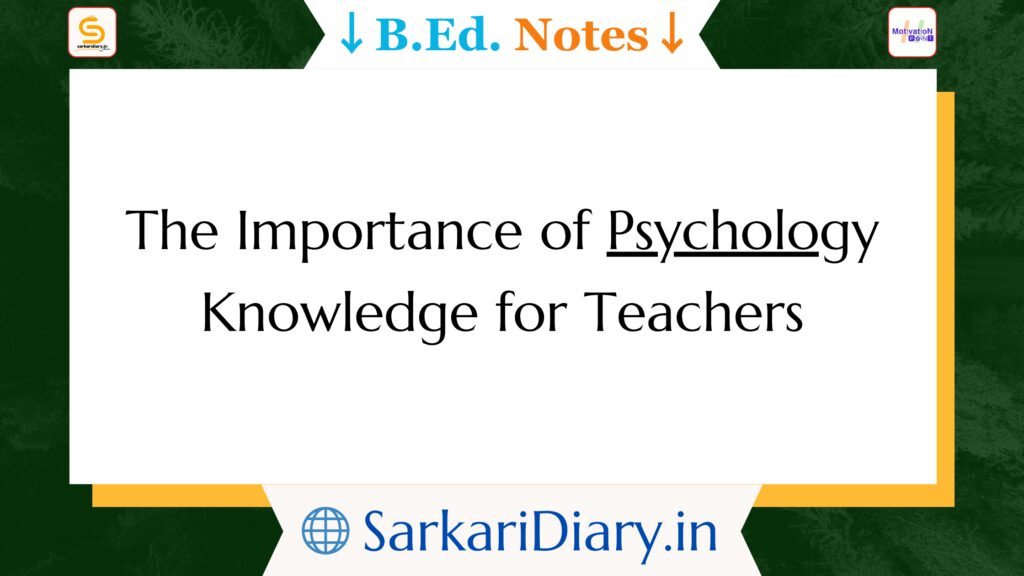Teaching is a noble profession that requires a diverse skill set to effectively educate and inspire students. While subject knowledge and pedagogical expertise are essential, an often overlooked but highly valuable asset for teachers is a solid understanding of psychology. This article explores the reasons why knowledge of psychology is useful for teachers and how it can enhance their teaching practices.
Creating a Positive Learning Environment
One of the key benefits of psychology knowledge for teachers is the ability to create a positive learning environment. By understanding the psychological needs and motivations of their students, teachers can tailor their teaching methods to foster engagement and optimize learning outcomes.
मनोविज्ञान का ज्ञान शिक्षक के लिए क्यों उपयोगी है?
For example, recognizing that students have different learning styles (such as visual, auditory, or kinesthetic) allows teachers to incorporate a variety of instructional techniques to cater to these preferences. This not only enhances students’ understanding and retention of information but also promotes inclusivity and accommodates diverse learning needs.
Effective Classroom Management
Psychology knowledge equips teachers with valuable insights into human behavior, which can be instrumental in maintaining an effective classroom management system. Understanding the underlying causes of disruptive behavior, such as attention-seeking or lack of motivation, enables teachers to address these issues proactively.
Applying principles of positive reinforcement and behavior modification can help teachers create a structured and supportive learning environment. By promoting positive behaviors and providing appropriate consequences for negative behaviors, teachers can foster a sense of responsibility and accountability among students.
Enhancing Communication and Relationships
Effective communication is at the heart of successful teaching. Psychology knowledge equips teachers with the tools to understand and adapt to the unique communication styles and needs of their students.
By understanding the psychological factors that influence communication, such as non-verbal cues, active listening, and empathy, teachers can establish strong connections with their students. This fosters trust, encourages open dialogue, and creates a safe space for students to express their thoughts and concerns.
Individualized Instruction and Differentiation
Every student is unique, with varying abilities, strengths, and challenges. Psychology knowledge empowers teachers to provide individualized instruction and implement effective differentiation strategies.
By understanding the cognitive and emotional development of students, teachers can tailor their teaching approaches to meet their specific needs. This may involve adapting assignments, providing additional support, or offering enrichment activities to challenge advanced learners.
Promoting Emotional Well-being
Psychology knowledge is invaluable in promoting the emotional well-being of students. Teachers who are well-versed in psychology can recognize signs of emotional distress or mental health issues and provide appropriate support or referrals.
By fostering a supportive and nurturing classroom environment, teachers can help students develop emotional resilience, coping mechanisms, and positive self-esteem. This, in turn, creates a conducive atmosphere for learning and personal growth.
Conclusion
In conclusion, knowledge of psychology is highly beneficial for teachers as it enhances their ability to create a positive learning environment, manage classrooms effectively, build strong relationships, provide individualized instruction, and promote emotional well-being. By incorporating psychological principles into their teaching practices, teachers can truly make a difference in the lives of their students, empowering them to reach their full potential.




